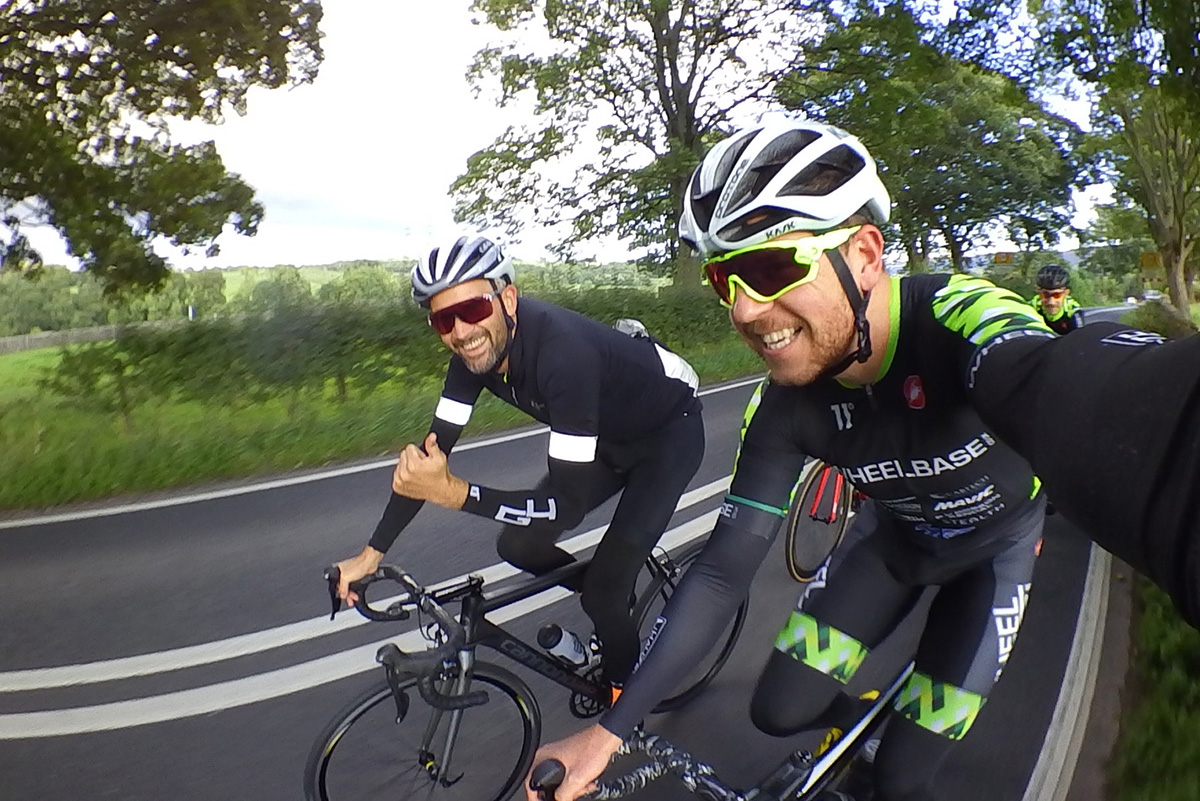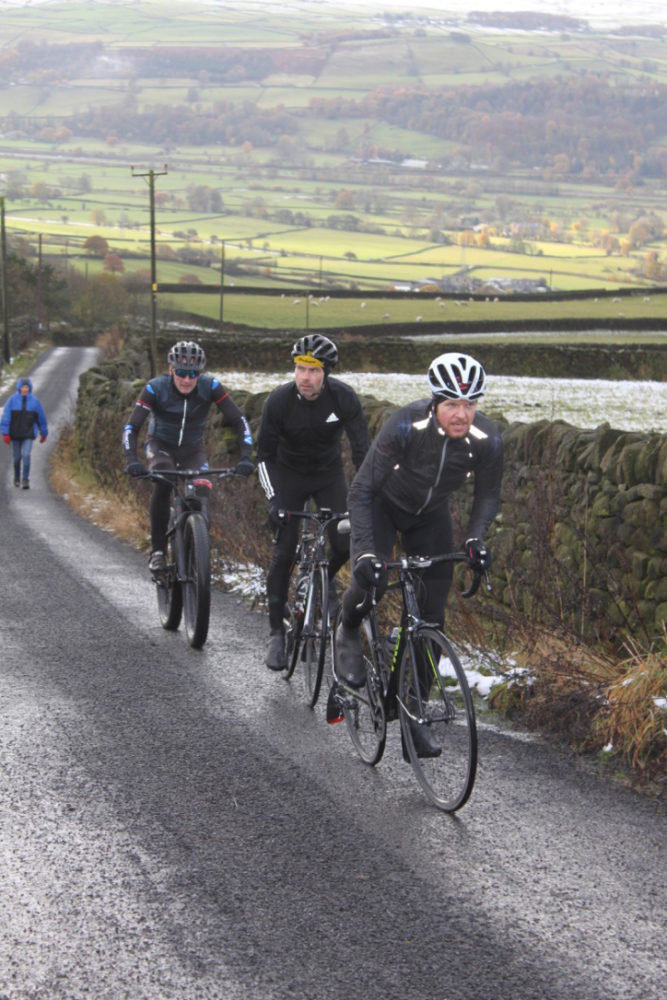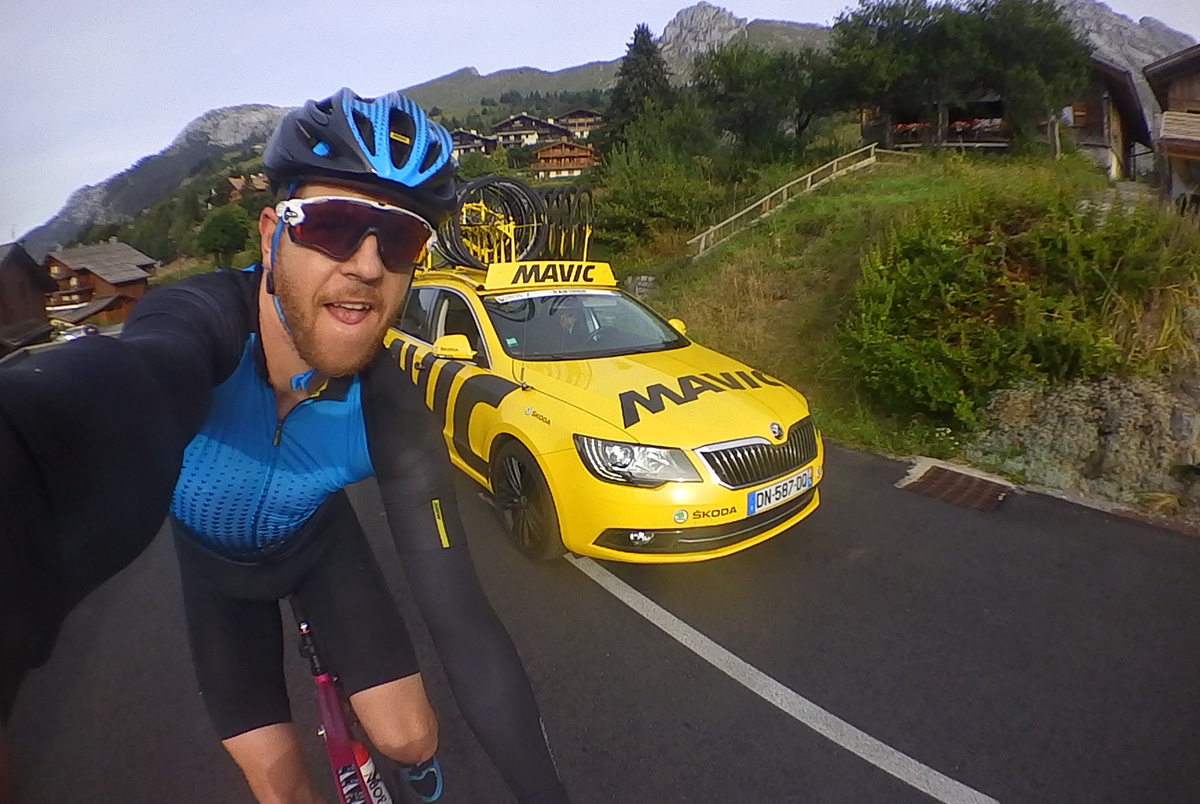
The start of a new year always brings with it the chance to assess the past year and plan goals for the upcoming 12 months. Whether it be tackling your local sportive, taking on a first century ride or competing in more races, everyone’s goals will be different but early January is the time to set your stall out and lay down the foundations for the year ahead.
One of the events on our radar for 2019 is the White Rose Classic, an event we first got involved in last year through connections with Ilkley Cycling Club and our Wheelbase Yorkshire store. Event organiser Scott from Ilkley CC recently caught up with our own mechanic Ben to talk goal setting and planning for a big event like the WRC. As well as being head mechanic at our store in Ilkley, Ben is also a triple endurance world record holder, has ridden the Haute Route with Team Mavic and Everested local Yorkshire climb ‘Murdermile’ in 19 hours. Here’s what he had say:
Scott: I’m planning on riding this year’s Hawes Long Route on the White Rose Classic. What is the best way for me to prepare? (FYI, the Long Route is longer and harder than in the past!)
Ben: Personally when preparing for a long hard ride like that of the White Rose Classic come summer, I find riding little and often through the winter months builds up a strong base of miles for when spring arrives. You are always better riding 20 miles every other day 4 times a week than riding 2 days a week and doing bigger miles. This gets your body use to riding and builds a better level of strength and fitness. Also if the weather is harsh, cold and wet it’s often better to do hard fast short rides than long endless miles getting cold and making your self ill. Also hill reps can be a great way to build strength when you are short of time. We all have family commitments and time to train can be an issue and I find going to my local climb when the weathers bad and setting my self a goal of 5 or 10 reps. This is sometimes harder than riding for 3-4 hours and can take half the time. Also you can listen to your body and get home if the weather turns for the worst of the wind changes direction.

Scott: What “must-have” kit should I carry when riding out in the Yorkshire Dales?
Ben: I think the best part of kit you can have is a waterproof jacket. Something you can throw on if you get a puncture and you are waiting around in the wind. Also if the weather turns it will keep you warm and protected from the elements. Even in Yorkshire the weather can turn and in summer can still be pretty cold. I’ve been known to ride through most of June with leg and arm warmers on. I would also say having a good spares kit with you is essential. Small mini pump, Tubes, puncture kit, tyre levers. The roads in the dales can be rough and harsh, if you haven’t replaced your tyres in a while, get them changed before you ride the White Rose Classic. Last thing you need when training hard or riding the event it’s self is constant punctures. Also I always carry an emergency gel or energy bar, I often stick this in with my tools rather than in my back pocket. I will still carry fuel for the ride, but this is a back up if I’m out training and use up all my fuel. The amount of times I’ve gone further than expected and got caught out. This has sometimes been a life saver and helps you get home.
Scott: What energy-saving strategies do you recommend?
Ben: Biggest tip I can give for energy saving is ride at your own pace, I see so many riders trying to hold other cyclists wheels and riding way too hard. Start slow and build up and finish fast. If there’s a good group that is going similar speeds, ride together and share the work. If the winds strong try to stick together and help each other out.
Scott: How can I be sure to have the right food/nutrition with me?
Ben: Food and Nutrition on the ride can be tricky and the only way to prepare for this is to eat little and often. So over 6-7 hours I would expect to eat 1 bar an hour and try and drink 250ml-500ml of water per hour if it’s hot. It’s not always possible to drink this much when riding a long sportive as depending on where you can refuel this isn’t always easy. I always try to drink lots the week before the ride. I often top up by drinking electrolytes a couple of days before and make sure I’m fully hydrated. I’m not a massive fan of eating loads of gels or drinking energy drinks, I would always take a gel or two with me but save these for the last 30 to 40 minutes of the ride if needed and the same with energy drinks as you can be on a slippery slope if you drink these too early in the ride. Also practice eating and drinking on the bike in training even on 3 hour ride. Fuel like you would on a 6 hour ride. This stops you from raiding the fridge when you get home and eating excessively after training. Having a recovery drink mixed and ready to drink as soon as you finish can also be a massive benefit.
Scott: I know I’m in good shape, but is my bike? What should I check before ride day?
Ben: The biggest issue I see on a daily basis is badly maintained bikes. Turning up to the White Rose with worn tyres, a dirty drive train or worn components is just asking for trouble. What’s the point of paying to ride, training for months to get there and then not finish due to a failure or endless punctures. This year I saw worn tyre’s right through to the tyre casing were you could see the innertube, bent mech hangers, gears out of alignment and worn chains and cassettes and many shifting issues or gears slipping stopping the rider from climbing the hardest of climbs. Worn brake pads and wheels out of true or rubbing against the frame or rim. If the weathers going to be wet, clean your wheels and replace your brake pads. We also had riders with badly worn cleats that half way round the cleat broke and stopped them from clipping in. I would recommend getting your bike serviced 2-3 weeks before your sportive. Replace cables, chain and cassettes etc, also getting the bike ready many weeks before gives you chance to test the bike and make adjustments. Never service the bike the day before and expect the bike to always run perfectly, if cables have been replaced you could have cables stretch even after the first few rides. If you are going to get your bike serviced last minute, make sure you trust your mechanic, explain to them what you are doing and when. As a professional mechanic for nearly 20 years, the more information a rider tells me the better. This gives not only me a clear understanding what the bike has been through but also what you are going to put the bike through in the coming days/ weeks. Be honest you can’t trick a good mechanic. If you haven’t changed the chain, cassette or chain rings for years get them changed, trust me it’s worth it.
Whatever your goals for 2019 we hope these tips from Ben offer a bit of useful advice and that you have a bike-filled year ahead. Why not check out our events page and see what we’ve got planned for 2019?


